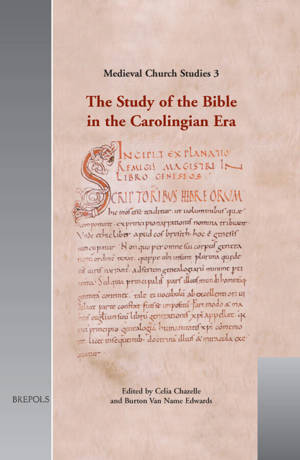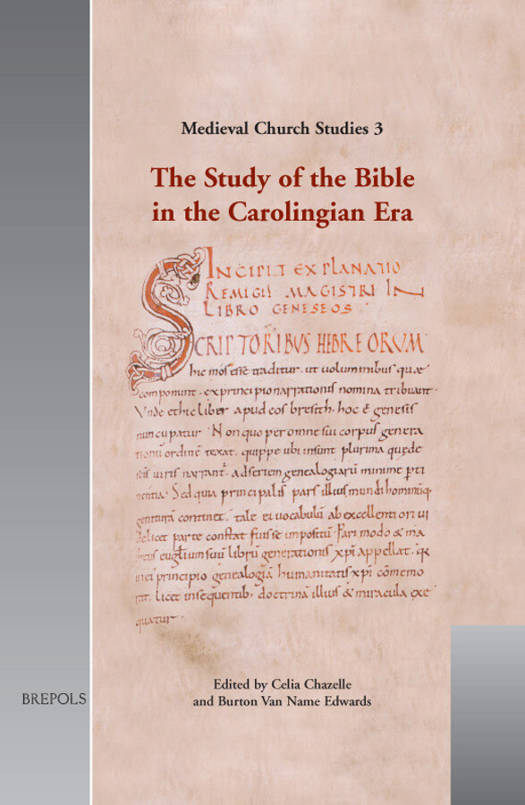
- Afhalen na 1 uur in een winkel met voorraad
- Gratis thuislevering in België vanaf € 30
- Ruim aanbod met 7 miljoen producten
- Afhalen na 1 uur in een winkel met voorraad
- Gratis thuislevering in België vanaf € 30
- Ruim aanbod met 7 miljoen producten
Zoeken
€ 79,50
+ 159 punten
Omschrijving
Knowledge of the Bible was the foundation of Carolingian intellectual life. Charlemagne's great capitulary, the Admonitio generalis, and his De litteris colendis leave no doubt that correct understanding of scripture, by both laity and the clergy responsible for communicating its message, was central to the king's efforts to lead his people to salvation. Biblical exegesis was the ovewhelmingly dominant form of literary production during the Carolingian epoch, not only in terms of the many original works but also in terms of the numerous copies made of older exegetical treatises. The substantial number of extant manuscripts of Carolingian exegetical writings strikingly demonstrates the transmission of this intellectual achievement to subsequent generations, whereby it exerted a well-documented influence on the twelfth-cenutry's new synthesis of biblical theology. This volume draws on recent scholarship which challenges the fifty-year old assessment by Beryl Smalley that Carolingian commentaries lacked originality and were worthy simply for transmitted their sources to the more original scholars of the eleventh century. The articles contained here show that the Carolingian period was a major turning-point in the history of the medieval approach to the Bible. Commentaries were composed for books of scripture ignored during the patristic era (such as the epistle to the Hebrews); new exegetical methods, such as the gloss, were invented; ninth-century exegetes selected and handled borrowings from earlier sources in an individualistic manner; and exegetical techniques impacted on poetry, homilies, artistic imagery and other manifestations of Carolingian intellectual life.
Specificaties
Betrokkenen
- Auteur(s):
- Uitgeverij:
Inhoud
- Aantal bladzijden:
- 270
- Taal:
- Engels
Eigenschappen
- Productcode (EAN):
- 9782503514048
- Verschijningsdatum:
- 4/03/2003
- Uitvoering:
- Hardcover
- Formaat:
- Genaaid
- Afmetingen:
- 167 mm x 247 mm
- Gewicht:
- 635 g

Alleen bij Standaard Boekhandel
+ 159 punten op je klantenkaart van Standaard Boekhandel
Beoordelingen
We publiceren alleen reviews die voldoen aan de voorwaarden voor reviews. Bekijk onze voorwaarden voor reviews.







